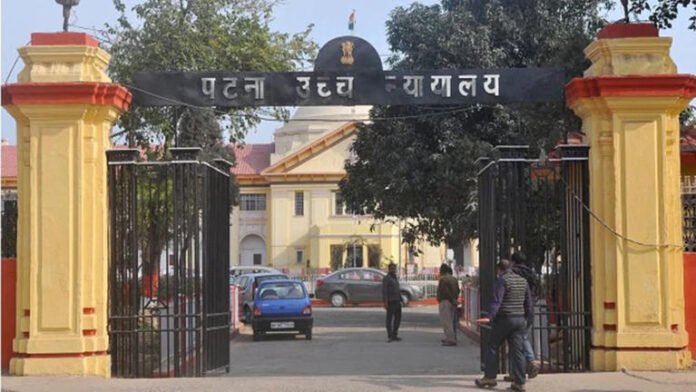The Patna High Court has sharply criticized the Bihar government over the implementation of its prohibition law, stating that the liquor ban has become a source of corruption for officials. In a scathing remark, the court highlighted the unintended consequences of the law, including the rampant illegal liquor trade and its misuse by those tasked with enforcing it.
This critique comes as Bihar grapples with the complex realities of enforcing prohibition, a policy that was introduced in 2016 under Chief Minister Nitish Kumar. While the law was initially praised for its social reform agenda, it has faced mounting criticism for its practical challenges and socio-economic repercussions.
The High Court’s Observations
During a hearing on November 14, 2024, the Patna High Court expressed concern over the failure of the prohibition law to curb alcohol consumption in the state. The court stated, “The liquor ban has become a means of big money for officials. It appears that the law is more about facilitating corruption than achieving its stated goals.”
The court pointed to the frequent arrests of low-level offenders while the masterminds behind the illegal liquor trade operate with impunity. It also questioned the state government’s inability to prevent liquor smuggling, noting that alcohol from neighboring states often floods Bihar’s black market.
These remarks followed a series of cases highlighting the misuse of the law. Many accused have reported extortion by officials, with allegations that bribes are demanded to avoid arrests or reduce penalties.
The Challenges of Prohibition in Bihar
The prohibition policy was introduced with the promise of reducing domestic violence, promoting social welfare, and fostering economic development by curbing alcohol consumption. However, its enforcement has been fraught with challenges.
One of the most significant issues is the rise of a thriving illegal liquor trade. Bootleggers have capitalized on the demand for alcohol, smuggling liquor into Bihar from neighboring states like Jharkhand, Uttar Pradesh, and West Bengal. This has led to the proliferation of underground networks, often with the alleged involvement of corrupt officials.
Additionally, the prohibition law has overwhelmed the state’s judicial system. Courts are flooded with cases related to liquor violations, often involving minor offenders. This has not only delayed justice but also diverted resources from addressing more pressing criminal cases.
Corruption Allegations Against Officials
The High Court’s remarks shed light on the systemic corruption linked to the prohibition law. There have been widespread allegations of officials accepting bribes to allow liquor smuggling or to shield offenders. Reports suggest that some enforcement officers collude with bootleggers, effectively turning the ban into a lucrative enterprise for a few.
These issues undermine public trust in the government’s ability to enforce laws fairly. Critics argue that the prohibition policy has created a parallel economy benefiting corrupt officials and criminals while penalizing ordinary citizens.
Public and Political Reactions
The High Court’s observations have reignited debates over the effectiveness of prohibition in Bihar. Opposition parties have seized the opportunity to criticize the Nitish Kumar government, accusing it of failing to address the law’s loopholes and the corruption it fosters.
Rashtriya Janata Dal (RJD) leader Tejashwi Yadav stated that the policy has become a “mockery of governance” and called for its immediate review. Civil society groups and activists have also echoed these sentiments, urging the government to prioritize comprehensive reform.
Supporters of the prohibition law, however, argue that it has led to a decrease in alcohol-related domestic violence and health issues. They believe that the policy needs stricter enforcement rather than repeal.
The Way Forward
The Bihar government faces mounting pressure to address the shortcomings of its prohibition policy. Experts suggest a multi-pronged approach that includes tackling corruption, strengthening law enforcement, and creating awareness about the dangers of illegal liquor.
Reforms in the judicial process could also help reduce the backlog of cases, ensuring swifter justice. Additionally, the government could explore alternative models, such as partial prohibition or regulated alcohol sales, to strike a balance between public health and practical governance.
The Patna High Court’s observations highlight the unintended consequences of Bihar’s prohibition law and its impact on governance and society. As debates continue, the state government must reassess its approach to ensure that the policy serves its intended purpose without fostering corruption or creating new challenges for the people.

